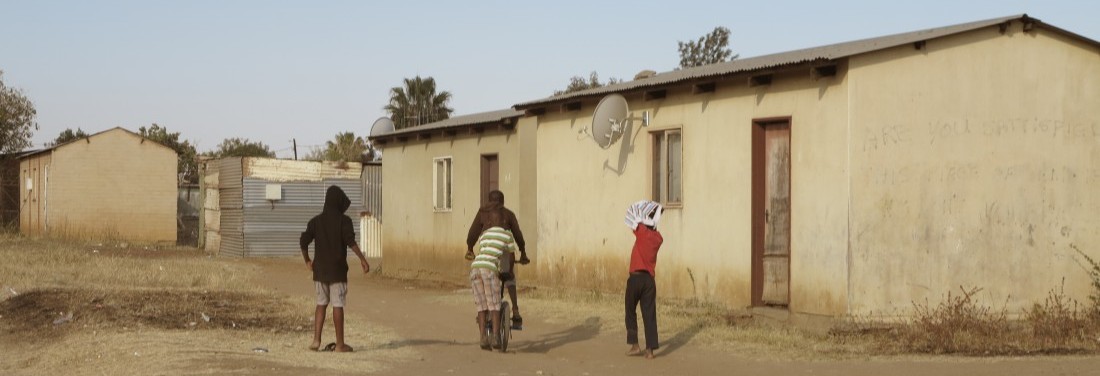07
Apr 2017
How Voluntourism Can Have a Negative Impact on Communities
Voluntourism is trending among millennials and mid-life crisis victims alike. An interplay of altruism and adventure, your average voluntourism itinerary will resemble something like teaching English to locals in dishevelled third-word classrooms, weekend safari trips with newly acquainted volunteer pals and most importantly, a significant increase in Facebook likes at the hands of jealous friends and concerned parents. All jokes aside, voluntourism is great, but before embarking on volunteer holiday, it’s important to understand the facts.
What is Voluntourism?
Voluntourism is the practice by individuals or groups willing to incorporate volunteering activity into their travel. Travellers, predominantly from first-world countries, work alongside locals in their poverty-stricken home towns with the aim of bettering their current situation, with practises ranging from orphanage care to wildlife conservation. Though, whilst voluntourism claims to make a difference and successes in doing so, it similarly condones an unhealthy relationship between the West and the poor and in worst case scenarios, results in an effect on the local community opposite to originally desired. Voluntourism makes the false presumption that development is not without the intervention of Westerners, that in deciding to ‘make a difference’ we are to assume the locals cannot think for themselves. Scholar Henry A. Giroux criticises voluntourism, stating that it maintains paternalistic undertones and “it normalises the differential in power between the voluntourist and the indigenous community”. Giroux criticises voluntourism as mimicking the current foreign aid model, a cycle which sees first-world to third-world transaction not only failing to address the root of the poverty problem but profiting from it.
Another fault of voluntourism is its emphasis on the individual. Travel companies beckon their gap year audiences with promises of reward in the form of adventure, unique experiences, friendship, culture and even future employability, all whilst helping the underprivileged. The promise makes the simplistic and false presumption that volunteers will be able to ‘make a difference’ during their short-lived, immediately-rewarding volunteer stays. Though it is commonly understood that altruism is never completely free from egoism, voluntourism, which combines both work and leisure, usually favours the latter.
Voluntourism Gone Wrong
Limited development at the hands of volunteers in local communities has seen, in worst case scenarios, the burden of added work for locals and orphanage tourism. Students undertaking unskilled volunteer activities such as construction work in the form of building homes, have not only failed to help local communities, but have burdened locals with the added responsibility of destroying and re-building homes otherwise inadequate for living.
Similar accounts of voluntourism gone wrong, include what is now known as ‘orphanage tourism’, an industry reliant on first-world intervention. Corrupt in its practice, the orphanage tourism is a cycle involving retrieving children from families to fill orphanages or community centers. The displaced children are branded as orphans, their place within the residence encouraging funding from international sources and ensuring business survival. Volunteers working with orphans are also at risk of causing trauma after forming bonds with children and then leaving after mere weeks or months.
Ethical Voluntourism
Voluntourism is neither good nor evil and though we may not be able to curb the poverty cycle, we can certainly do our bit to reduce any negative impact on third-world communities after assessing the faults of current practices.
Before undertaking voluntourism you can:
- Understand you are not superior and can learn from the locals as much as they can learn from you
- Research travel companies before signing up on missions and probe them on their relationship with in-country partners (i.e. are their practices free from corruption?)
- Opt for longer-term volunteering to encourage more meaningful development
- Choose work you are qualified in
- Choose work which promotes sustainable business models and skill-sets
- Avoid taking and sharing photos of locals via social media, which turn them into a spectacle
Volunteering missions should encourage and help develop local business, equipping locals with the skills and knowledge to empower and sustain themselves far beyond the next white twenty-something entering their town to build another unstable clay home.
Soulful Concepts does not offer voluntourism activities but rather, responsible and sustainable experiences that give back to the local community and environment, empowering locals to start up local businesses and work off their own skill sets.
Article by: Julia Carr-Catzel
References:
-
Liston-Heyes, C., and C. Daley. “Voluntourism, Sensemaking and the Leisure-volunteer Duality.” Tourist Studies (2016): n. pag. Web.
-
Mcgloin, Colleen, and Nichole Georgeou. “Looks Good on Your CV: The Sociology of Voluntourism Recruitment in Higher Education.” Journal of Sociology 52.2 (2016): 403-17. Web.
-
Slowe, Peter. “On Voluntourism in Africa.” New African May 2015: n. pag. Print.


Pingback: Soulful Concepts – Sustainable Travel – Eat My Thoughts